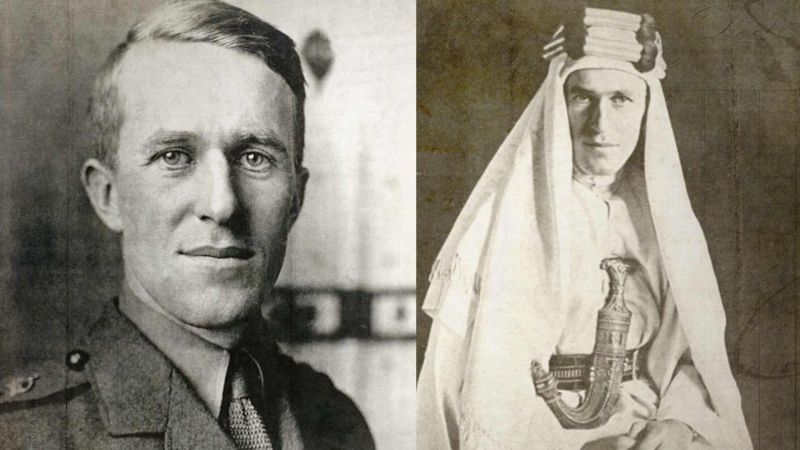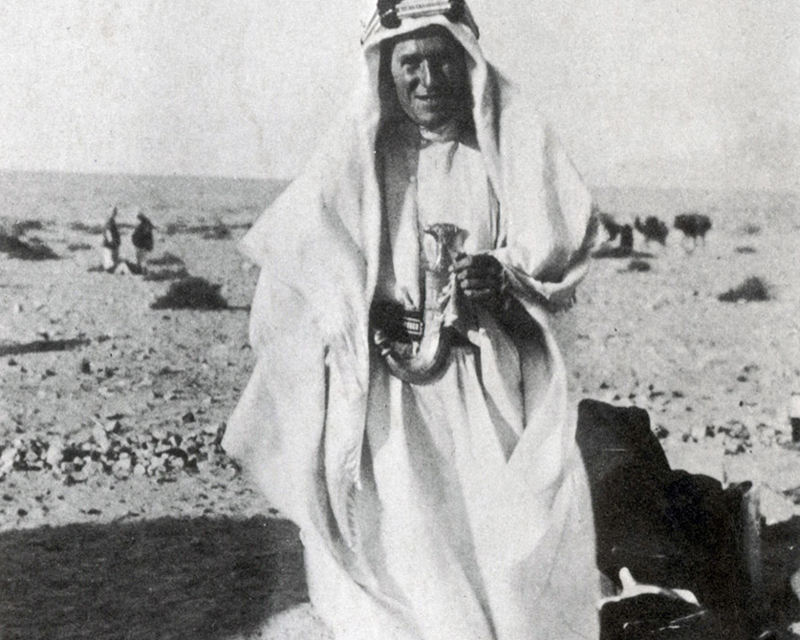Lawrence of Arabia
Thomas Edward Lawrence was a British archaeologist, army officer, diplomat, and writer who is most known for his liaison work in the Sinai and Palestine campaigns and for supporting the Arab Revolt against the Ottoman Empire. T.E. Lawrence, an architect, and archaeologist, frequently traveled to Egypt and the Middle East before the war, which made him of enormous strategic use after it started. Lawrence was assigned as an intelligence officer in Cairo in December 1914 when hostilities started. The Intelligence had contact with the Emir of Mecca, Sharif Hussein, who was conversing with the British and offered to lead an Arab insurrection against the Ottomans. As the Arab Revolt erupted in 1916, Lawrence was tasked with joining Hussein's son Faisal's Arabian army as a liaison officer. There, he contributed significantly to guerilla warfare against the Turkish lines.
Near the end of the war, the Arab world was freed, but Lawrence's dream of the peninsula becoming a single nation was destroyed. He became disillusioned by the Allied shady deals and Arabian factionalism and fled to England, where he turned down the praises that were extended to him. T.E. Lawrence rose to fame during his lifetime. He authored his battle narrative, The Seven Pillars of Wisdom, advocated for the independence of Arab nations after the war, and served in the Royal Air Force. He became well-known in 1962 thanks to the historical drama "Lawrence of Arabia", which was based on his life and won seven Academy Awards.
Lifespan: August 16, 1888 – May 19, 1935
Nation: Britain

















